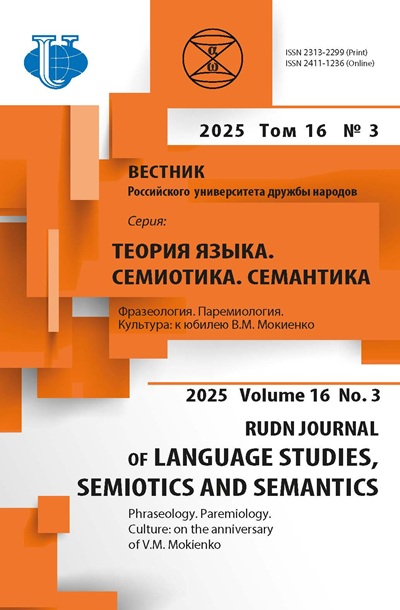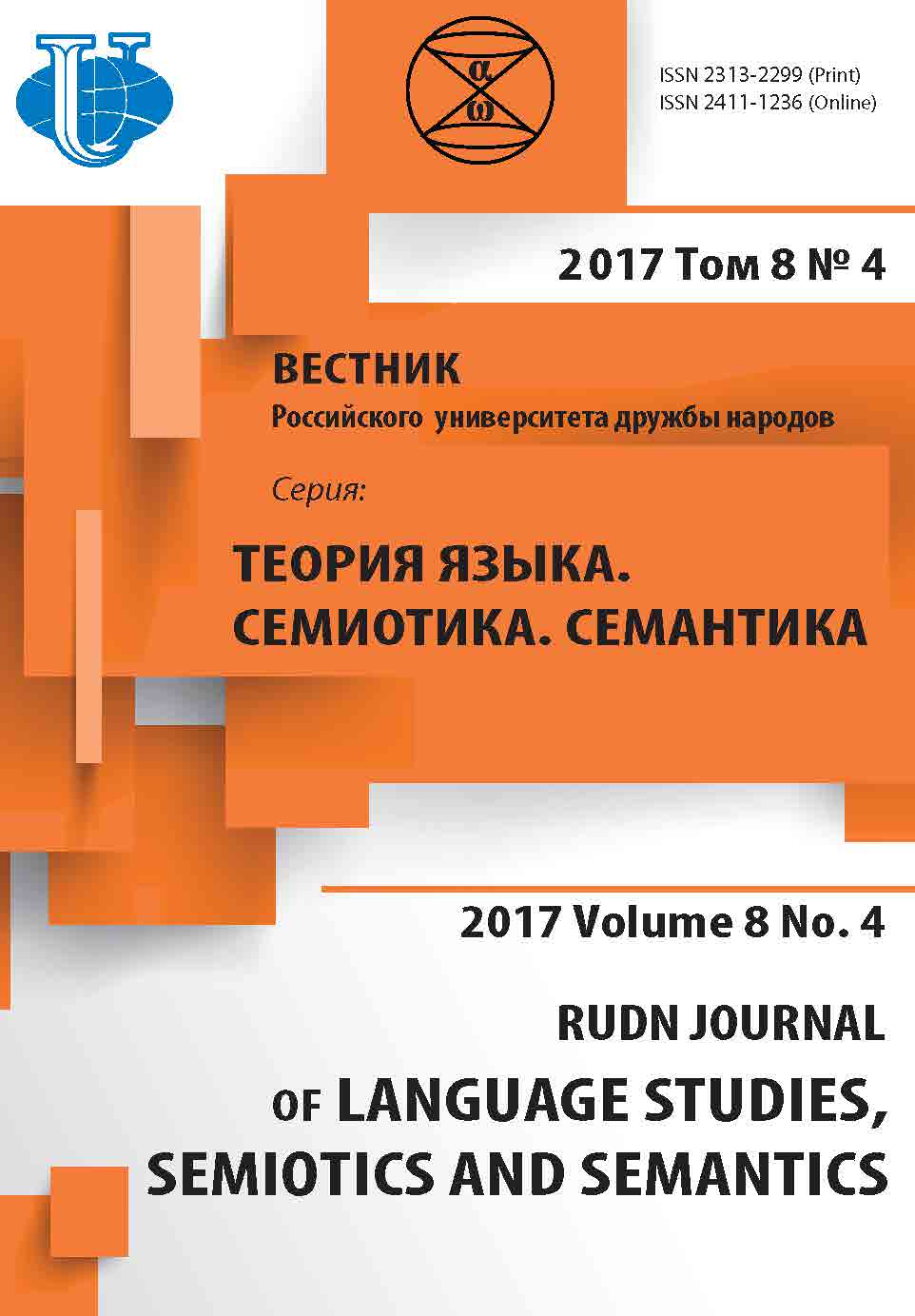К ВОПРОСУ ОБ ОСОБЕННОСТЯХ РЕЛИГИОЗНОГО (ПРАВОСЛАВНОГО) ДИСКУРСА: АССОЦИАТИВНО-ВЕРБАЛЬНЫЙ АСПЕКТ
- Авторы: Кошелева ТИ1
-
Учреждения:
- Новгородский государственный университет им. Ярослава Мудрого
- Выпуск: Том 8, № 4 (2017)
- Страницы: 1028-1032
- Раздел: СТАТЬИ
- URL: https://journals.rudn.ru/semiotics-semantics/article/view/17983
- DOI: https://doi.org/10.22363/2313-2299-2017-8-4-1028-1032
- ID: 17983
Цитировать
Полный текст
Аннотация
В статье представлены результаты ассоциативного эксперимента, направленного на обнаружение особенностей религиозного (православного) дискурса. Поскольку в речи православных верующих отражается специфика религиозного мировоззрения, их ассоциативные реакции на словесные стимулы отличаются от реакций неверующих носителей русского языка. Актуальность исследования обусловлена обращением к православному дискурсу, лингвистический интерес к которому усилился в связи с изменением отношения общества к церкви.
Ключевые слова
Об авторах
Т И Кошелева
Новгородский государственный университет им. Ярослава Мудрого
Автор, ответственный за переписку.
Email: tatkosh68@mail.ru
Татьяна Ивановна Кошелева, кандидат филологических наук, доцент кафедры русского языка Новгородского государственного университета им. Ярослава Мудрого; научные интересы: православный дискурс, ассоциативный эксперимент, языковое сознание
ул. Большая Санкт-Петербургская, 41, Великий Новгород, Россия, 173003Список литературы
- Бугаева И.В. Языковая личность в религиозном дискурсе: к постановке проблемы // Язык и социум. Материалы VI Межд. науч. кон-ции. 3-4 дек. 2004 г. Ми нск, 2005. Т. 1. С. 12-15.
- Русский ассоциативный словарь. В 2 т. Т. 1. От стимула к реакции / Ю.Н. Караулов , Г. А. Черкасова, Н.В. Уфимцева, Ю.А. Сорокин, Е.Ф Тарасов. М., 2002.
Дополнительные файлы












